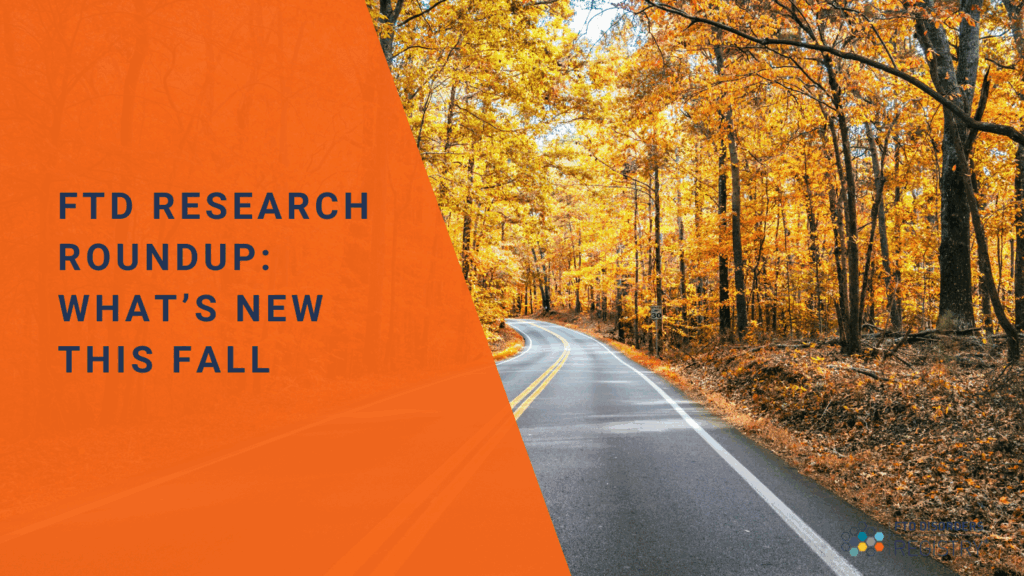PRESS & NEWS
FTD Research Roundup: What’s New This Fall

The Fall Research Roundup highlights new studies now enrolling people living with FTD, care partners, and biological family members.
As the seasons change, so does the landscape of FTD disorders research. New studies are opening, and ongoing projects continue to seek participants whose contributions make discovery possible. This fall, the FTD Disorders Registry is highlighting several new opportunities for participation, whether you are a person diagnosed, a care partner, a biological family member, or a healthcare professional helping to connect patients to research.
Every enrollment, every survey response, and every shared experience helps researchers better understand frontotemporal degeneration and related disorders. Below, you will find studies currently recruiting in a range of areas.
Corticobasal Degeneration (CBD)
Researchers are working to better understand CBD and potential treatment options.
Baycrest Study on tDCS for Individuals with PSP or CBD
Primary Progressive Aphasia (PPA)
Current studies are seeking participants living with PPA and their families to help advance understanding of language loss and communication changes.
Baycrest Study on tDCS for Individuals with PPA
Clinical Study of the P38 Alpha Kinase Inhibitor Neflamapimod for those with nfvPPA
University of Pennsylvania PPA Study
VERI-T: A Trial of Verdiperstat in svPPA due to TDP-43
Progressive Supranuclear Palsy (PSP)
Research on PSP continues to expand, including efforts to identify and test potential treatments.
Baycrest Study on tDCS for Individuals with PSP or CBD
Care Partners
Caring for someone with FTD brings unique challenges, and researchers are working to learn more about caregiver well-being, stress, and support needs. Participating in these studies can help improve resources and services for families impacted by FTD.
Biological Family Members
Family members, even those without symptoms, play a crucial role in FTD research. Studies may look at genetic risk factors, early changes in cognition or behavior, and what helps people prepare for the future.
Development in Families with Neurodegenerative Disease
Persons Diagnosed and Care Partner Support
Some studies invite both the person diagnosed and their care partner to participate together, offering a more complete view of life with FTD. These projects often explore communication, quality of life, and daily care experiences.
Canadian Studies
If you live in Canada, there are several opportunities to contribute to FTD research close to home.
Baycrest Study on tDCS for Individuals with PPA
Baycrest Study on tDCS for Individuals with PSP or CBD
Join the Movement
Every person who participates in research moves us closer to treatments and better care for families living with FTD. To learn more about these and other opportunities, visit our Find-A-Study page or log into your Registry account to see studies that may be a good match for you.
Numbers have power. Together, we can change the future of FTD.
Together we can find a cure for ftd
The FTD Disorders Registry is a powerful tool in the movement to create therapies and find a cure. Together we can help change the course of the disease and put an end to FTD.
Your privacy is important! We promise to protect it. We will not share your contact information.



